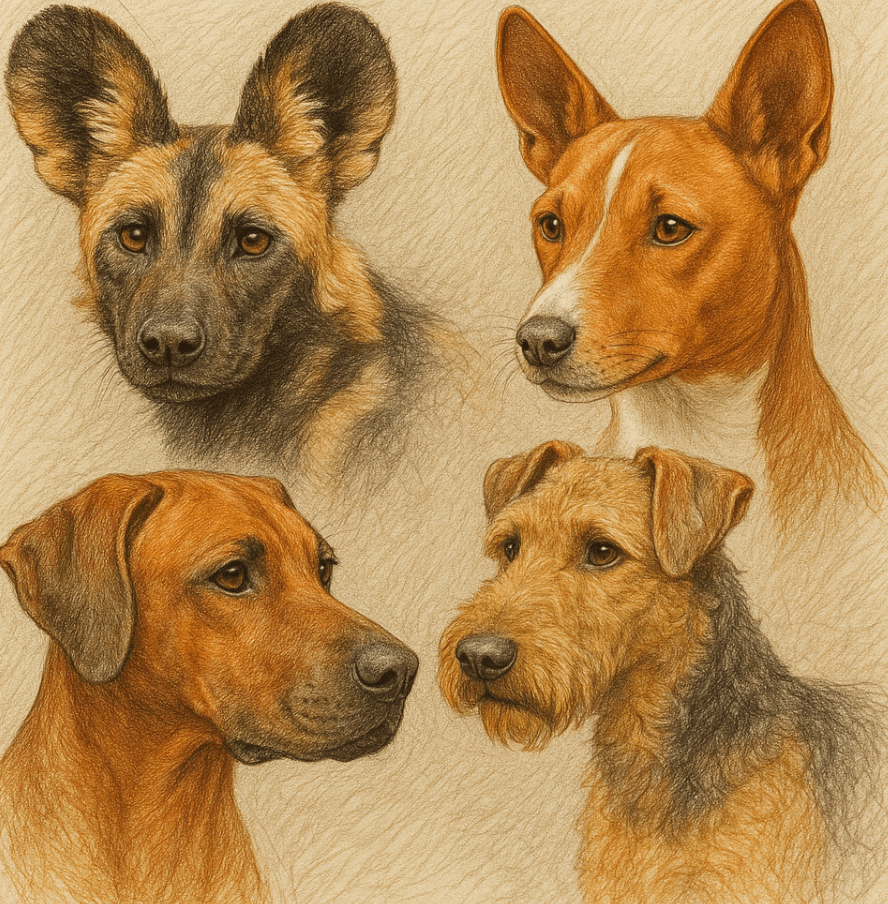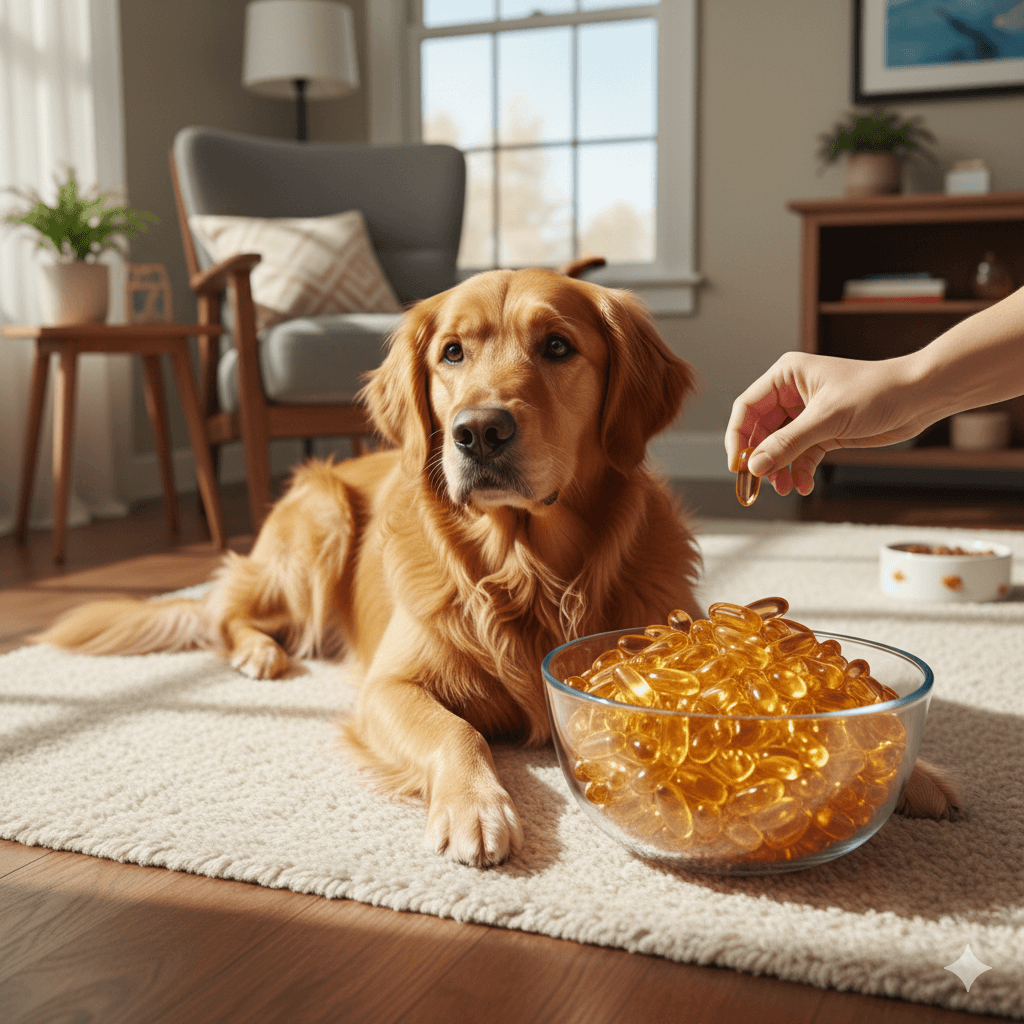African Dog Breeds: A Celebration of Diversity and Heritage
The African continent is home to a rich tapestry of cultures, landscapes, and wildlife—and its dog breeds are no exception. From the rugged deserts of North Africa to the vast savannas of the south, these dogs have evolved to thrive in some of the world’s most challenging environments. African dog breeds are not only remarkable for their resilience but also for their unique roles in herding, hunting, guarding, and companionship.
Many of these breeds remain relatively unknown outside their native regions, yet they embody centuries of tradition and adaptation. In this blog post, we’ll explore the fascinating world of African dog breeds, highlighting their characteristics, histories, and contributions to human life across the continent.
Popular African Dog Breeds You Should Know
Africa boasts a diverse range of dog breeds, each with its own distinct traits and cultural significance. Here are some of the most well-known African dog breeds that showcase the continent’s rich canine heritage.
Basenji:
Often referred to as the “barkless dog,” the Basenji is known for its unique yodel-like sound and independent nature. Originating from Central Africa, it was bred for hunting small game.Rhodesian Ridgeback:
Hailing from Southern Africa, this breed is famous for the distinctive ridge of hair along its back. Originally used for lion hunting, it’s now a loyal family companion.Sloughi:
This elegant sighthound from North Africa is prized for its speed and agility. The Sloughi has been a trusted hunting partner for centuries.Boerboel:
A powerful mastiff-type breed from South Africa, the Boerboel excels as a guardian and protector. Its strength and loyalty make it a formidable yet gentle companion.Azawakh:
Native to the Sahel region of West Africa, the Azawakh is a lean and graceful sighthound known for its endurance and ability to withstand extreme heat.
These breeds reflect the diversity of Africa’s landscapes and cultures, each uniquely adapted to its environment and purpose.
Characteristics That Define African Dog Breeds
African dog breeds share several traits that set them apart from other dogs around the world. These characteristics are a testament to their adaptability and resilience in challenging conditions.
Heat Tolerance:
Many African breeds have thin coats and lean builds, allowing them to stay cool in hot climates.Endurance and Speed:
Sighthounds like the Azawakh and Sloughi are built for speed and stamina, essential for hunting in open terrains.Independence:
Breeds such as the Basenji are known for their independent streaks, a trait developed from working solo or in small groups.Guarding Instincts:
Dogs like the Boerboel and Rhodesian Ridgeback are natural protectors, making them excellent guard dogs for families and livestock.Adaptability to Harsh Environments:
African breeds often thrive in areas with limited resources, showcasing their ability to survive on minimal food and water.
These shared traits highlight the ingenuity of nature in shaping dogs that can flourish in Africa’s diverse ecosystems.
Check this guide 👉Red Hound Dog Breeds: Best 7 Expert Tips!
Check this guide 👉Brachycephalic Dog Breeds: Best 7 Expert Tips!
Check this guide 👉Hypoallergenic Dog Breeds: Best 7 Expert Tips!

African Dog Breeds | Key Characteristics |
|---|---|
Basenji | Barkless, intelligent, and highly active |
Rhodesian Ridgeback | Loyal, strong, and protective |
Sloughi | Agile, elegant, and fast |
Boerboel | Powerful, fearless, and devoted |
Azawakh | Lean, graceful, and heat-tolerant |
How African Dog Breeds Have Shaped Local Cultures
For centuries, African dog breeds have played vital roles in the daily lives of communities across the continent. Their contributions extend beyond companionship to include practical and symbolic purposes.
Hunting Partners:
Breeds like the Basenji and Azawakh were indispensable for tracking and capturing game, providing food for their human families.Livestock Guardians:
The Boerboel and Rhodesian Ridgeback protected herds from predators, ensuring the survival of valuable livestock.Cultural Symbols:
Some African tribes view certain dog breeds as symbols of status or spiritual significance, integrating them into rituals and traditions.Companions in Nomadic Life:
Dogs accompanied nomadic tribes, serving as both protectors and scouts in unfamiliar territories.Modern Companions:
Today, many African breeds are cherished as family pets worldwide, bridging cultural gaps and spreading awareness of their heritage.
These roles underscore the deep bond between African dog breeds and the people who rely on them.
Challenges Facing African Dog Breeds Today
Despite their resilience, African dog breeds face numerous challenges that threaten their survival and recognition. Addressing these issues is crucial to preserving their legacy.
Limited Awareness:
Many African breeds remain unknown globally, leading to a lack of appreciation and support for their conservation.Crossbreeding Risks:
Uncontrolled breeding with non-native dogs dilutes the genetic purity of traditional African breeds.Economic Hardships:
In some regions, economic struggles force owners to prioritize utility over preservation, endangering rare breeds.Climate Change Impact:
Environmental changes affect the habitats where these dogs traditionally thrived, posing new survival challenges.Lack of Formal Recognition:
Few African breeds are officially recognized by international kennel clubs, limiting efforts to promote and protect them.
By raising awareness and supporting conservation initiatives, we can help safeguard these remarkable breeds for future generations.
Training Tips for African Dog Breeds
Training an African dog breed requires understanding their temperament and instincts. These tips can help you build a strong relationship with your pet.
Start Early:
Begin training as soon as possible to establish trust and set clear boundaries.Use Positive Reinforcement:
Reward good behavior with treats, praise, or playtime to encourage repetition.Be Patient with Independent Breeds:
Breeds like the Basenji may test boundaries, so consistency is key to earning their cooperation.Provide Mental Stimulation:
Engage their intelligence with puzzle toys or agility exercises to prevent boredom.Socialize Regularly:
Expose your dog to different environments, people, and animals to foster confidence and adaptability.
With patience and dedication, training an African breed can be a rewarding experience for both you and your dog.
Health Considerations for African Dog Breeds
While generally hardy, African dog breeds may be prone to specific health issues depending on their genetics and environment. Understanding these risks ensures proactive care.
Hip Dysplasia:
Larger breeds like the Rhodesian Ridgeback may develop joint problems, requiring regular vet check-ups.Bloat Risk:
Deep-chested breeds like the Boerboel are susceptible to bloat, a life-threatening condition that demands immediate attention.Skin Sensitivity:
Thin-coated breeds like the Azawakh may suffer from sunburn or skin irritation in harsh climates.Eye Conditions:
Some African breeds are prone to eye issues, necessitating routine monitoring and care.Parasite Prevention:
Fleas, ticks, and worms are common threats, especially in rural areas, emphasizing the need for preventative treatments.
Proactive healthcare helps ensure your African breed lives a long, healthy life.
Fun Facts About African Dog Breeds
African dog breeds are full of surprises, with fascinating quirks and stories that make them even more endearing.
Basenji Grooming Habits:
Known for their cleanliness, Basenjis groom themselves like cats, keeping their coats free of dirt and odors.Ridgeback’s Unique Markings:
The Rhodesian Ridgeback’s distinctive ridge grows in the opposite direction of the rest of its fur, a trait unique to the breed.Azawakh’s Social Structure:
Azawakhs form strong bonds with their pack, often prioritizing human companionship over other dogs.Boerboel’s Protective Nature:
The Boerboel’s devotion to its family makes it one of the most reliable guard dogs in the world.Sloughi’s Ancient Lineage:
Depictions of Sloughis appear in ancient Egyptian artifacts, showcasing their long-standing role in human history.
These fun facts highlight the charm and uniqueness of African dog breeds, making them all the more special.
Frequently Asked Questions About African Dog Breeds
Are African dog breeds good for first-time owners?
While some breeds, like the Rhodesian Ridgeback, are adaptable, others, such as the Basenji, require experienced handling due to their independence.
Do African dog breeds get along with children?
Many African breeds, including the Boerboel and Rhodesian Ridgeback, are known for their gentle nature with kids when properly socialized.
How do I care for an African breed in a cooler climate?
Provide warm bedding and limit outdoor time during cold weather, as most African breeds are not suited to low temperatures.
Are African dog breeds easy to train?
Training difficulty varies; breeds like the Boerboel are eager to please, while others, like the Basenji, may require patience and consistency.
Where can I adopt an African dog breed?
Look for reputable breeders or rescue organizations specializing in African breeds, ensuring ethical sourcing and proper care.
Celebrating the Legacy of African Dog Breeds
African dog breeds are living testaments to the continent’s rich history and biodiversity. From the swift Azawakh to the steadfast Boerboel, these dogs embody the spirit of resilience and adaptability. By learning about their stories, appreciating their unique qualities, and supporting efforts to preserve their heritage, we honor the bond between humans and animals that has endured for millennia. Whether as hunters, guardians, or beloved companions, African dog breeds continue to inspire admiration and respect worldwide.
Are Portuguese Water Dogs Hypoallergenic? Best 7 Tips! – Discover if this breed suits allergy sufferers, grooming tips, and care advice for a happy, healthy companion.
Can You Give a Cat Too Much Fish Oil? Best 7 Expert Tips! – Discover safe dosages, risks of overuse, and how to boost your cat’s health with omega-3s responsibly.
Can You Give a Dog Too Much Fish Oil? Best 7 Expert Tips! – Discover safe dosages, risks of overuse, and how to boost your dog’s health with fish oil.
Noise Phobia in Cats: Best 7 Expert Tips! – Discover causes, symptoms, and solutions to help your cat cope with noise-related anxiety effectively.




